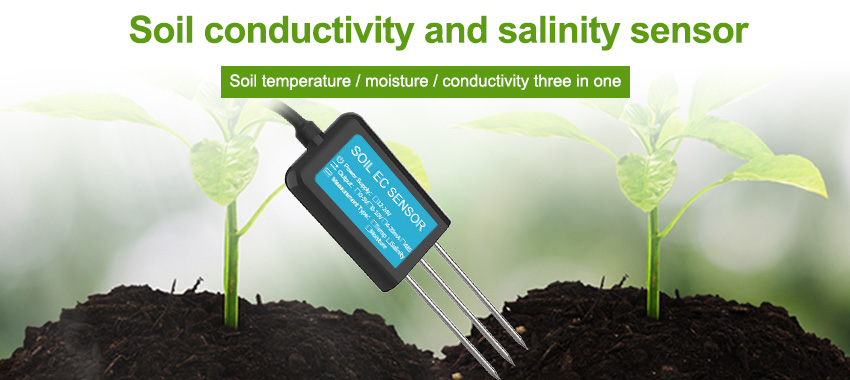Agriculture is a vital industry that feeds the world’s population. With the global demand for food expected to increase, it is crucial to maximize agricultural productivity while minimizing environmental impact. Soil sensor technology has emerged as a powerful tool in achieving this balance. These sensors enable farmers to monitor and optimize soil conditions, resulting in improved crop yields, efficient resource management, and sustainable farming practices. In this article, we will explore the importance of soil sensor technology in unlocking agricultural potential, discuss its applications, and highlight the benefits it offers to farmers and the environment.

Understanding the Role of Soil in Agriculture:
Soil is the foundation of agriculture, providing essential nutrients, water storage, and physical support for plants. The health and fertility of soil directly impact crop growth and productivity. However, soil conditions can vary significantly within a single field, making it challenging for farmers to optimize crop management practices. Factors such as moisture content, nutrient levels, pH, and salinity can vary across different areas of a field. Therefore, understanding and monitoring these soil parameters are crucial for maximizing agricultural potential.
Applications of Soil Sensor Technology:
Moisture Monitoring:
Water is a critical resource in agriculture, and proper irrigation management is essential for crop growth. Soil moisture sensors allow farmers to monitor the moisture content at various depths in the soil profile. This information helps optimize irrigation schedules by ensuring that crops receive the right amount of water at the right time. By avoiding over- or under-irrigation, farmers can conserve water resources, reduce energy costs, and enhance crop yield and quality.
Nutrient Management:
Optimal nutrient levels are vital for plant growth and development. Soil sensors can measure nutrient concentrations in the soil, allowing farmers to make informed decisions about fertilizer application. This targeted approach minimizes excess fertilizer use, reduces nutrient runoff, and mitigates the risk of water pollution. By precisely managing nutrient levels, farmers can optimize crop nutrition, increase yield, and minimize environmental impact.
pH and Salinity Monitoring:
Soil pH and salinity significantly impact plant health and nutrient availability. Soil sensors can measure these parameters, enabling farmers to identify areas of high acidity or salinity. With this information, farmers can take corrective measures, such as applying lime to adjust soil pH or leaching excess salts from the soil. Balancing soil pH and salinity levels ensures optimal conditions for crop growth and minimizes the risk of yield losses due to poor soil quality.
Precision Agriculture:
Soil sensor technology plays a crucial role in precision agriculture, which involves using data-driven approaches to optimize crop management at the field level. By collecting data from multiple soil sensors distributed across a field, farmers gain a comprehensive understanding of soil variability. This information enables them to create detailed soil fertility maps, tailor fertilizer application rates, and implement site-specific irrigation strategies. Precision agriculture maximizes resource efficiency, minimizes input waste, and improves overall farm productivity.
Benefits of Soil Sensor Technology:
Increased Crop Yield and Quality:
By accurately monitoring soil conditions, farmers can optimize crop management practices and provide crops with the ideal growing environment. This results in increased crop yield and improved quality, thereby maximizing agricultural productivity.

Efficient Resource Management:
Soil sensor technology enables precise and targeted application of water, fertilizers, and other resources. This reduces resource waste, conserves water, minimizes chemical runoff, and lowers production costs. Efficient resource management benefits both the environment and farmers’ profitability.
Sustainable Farming Practices:
By ensuring optimal soil conditions, soil sensor technology promotes sustainable farming practices. Farmers can minimize environmental impact by reducing the use of fertilizers and water while maintaining or increasing crop productivity. Sustainable farming practices help preserve soil health, conserve natural resources, and mitigate climate change.
Data-Driven Decision Making:
Soil sensor technology provides farmers with real-time data on soil conditions. This information enables informed decision-making, allowing farmers to adjust management practices promptly and effectively. By leveraging data-driven insights, farmers can optimize crop yield, minimize risk, and improve operational efficiency.
Conclusion:
Soil sensor technology has revolutionized agriculture by enabling farmers to understand and optimize soil conditions. By monitoring moisture levels, nutrient availability, pH, and salinity, far
